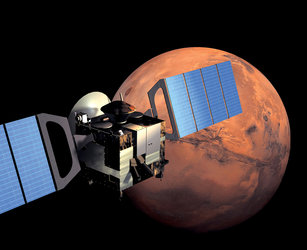To the Moon and Beyond: How Technology is Enabling New Frontiers in Space Exploration
Space exploration has come a long way since the first manned mission to the moon in 1969. The advancements in technology have enabled new frontiers in space exploration, and have made it possible for humans to travel further and deeper into space than ever before. From the moon to Mars and beyond, technology is playing a critical role in making these missions possible.
One of the key technology advancements that has enabled new frontiers in space exploration is the development of reusable rockets. Traditional rockets were used once and then discarded, making space travel expensive and unsustainable. Reusable rockets, on the other hand, can be used multiple times, significantly reducing the cost of space travel and enabling new missions to be undertaken. This has opened up new possibilities for space exploration, including the potential for manned missions to Mars.
Another technology that has enabled new frontiers in space exploration is the development of autonomous vehicles. Autonomous vehicles, such as rovers and drones, are capable of navigating and exploring space on their own, without the need for human intervention. This allows us to explore areas of space that were previously inaccessible, such as the surface of other planets or the dark side of the moon. Additionally, autonomous vehicles can also be used for tasks such as mapping and surveying, which would otherwise be time-consuming and costly for humans to undertake.
Furthermore, advancements in artificial intelligence (AI) and machine learning are also enabling new frontiers in space exploration. These technologies are being used to analyze and process large amounts of data, which is helping scientists to better understand the cosmos and make new discoveries. Additionally, AI is also being used to improve the control and navigation of spacecraft, as well as to make decisions in real-time, which is crucial for missions in deep space.
In addition to the above, miniaturization of technology is also playing a critical role in space exploration. Smaller and more compact instruments and devices are making it possible to launch more payloads into space, and to explore new areas of the cosmos. Additionally, miniaturization of technology is also making it possible to launch missions at a lower cost.
In conclusion, technology is playing a critical role in enabling new frontiers in space exploration. From reusable rockets to autonomous vehicles, AI, and miniaturization, these technology advancements are making it possible for humans to travel further and deeper into space than ever before. The potential for manned missions to Mars and the ability to explore new areas of the cosmos are just a few examples of the exciting possibilities that technology is making possible in the field of space exploration. As technology continues to advance, we can expect to see even more exciting developments in the field of space exploration in the future.



Comments
Post a Comment